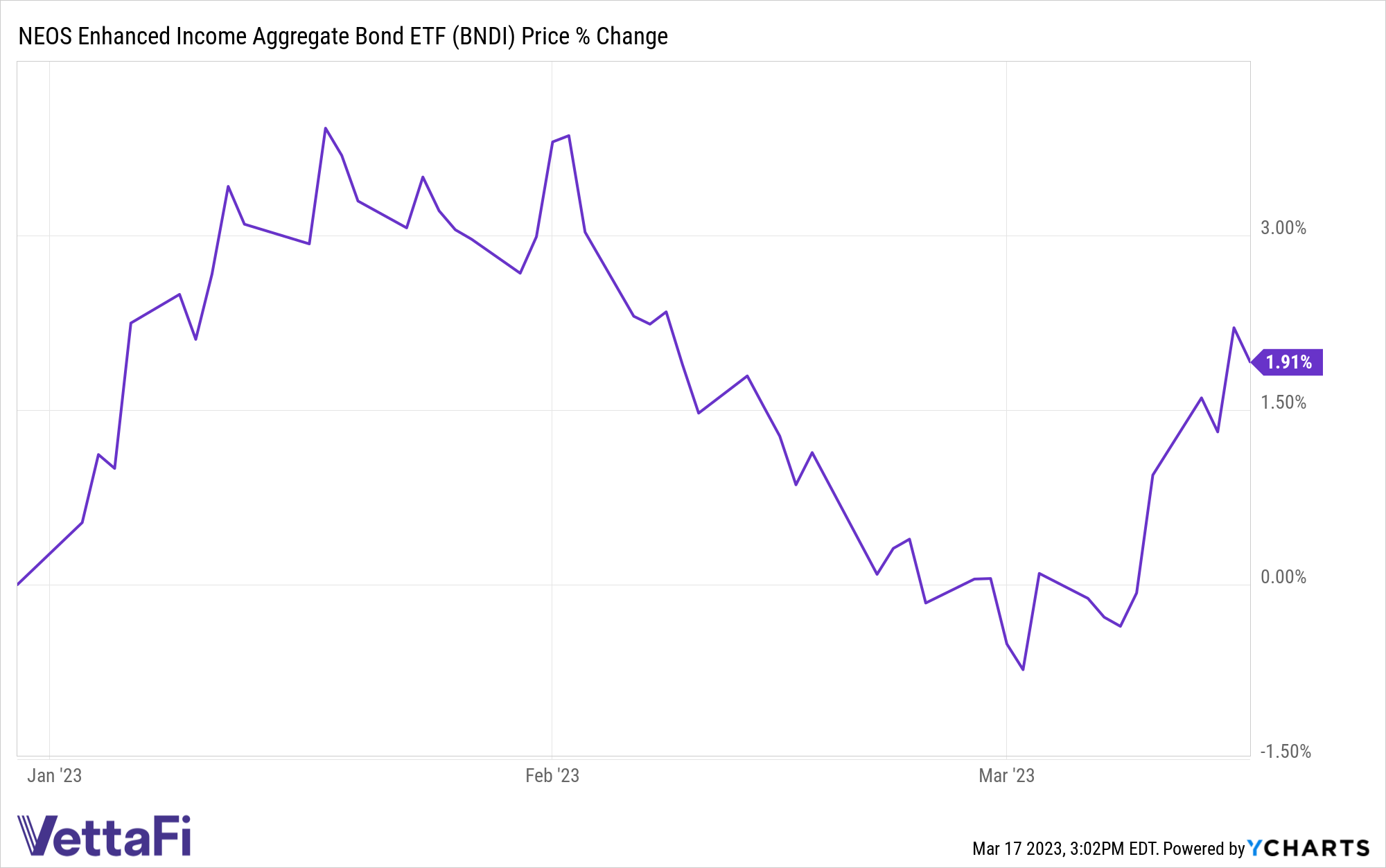Turmoil in the banking sector is likely to elicit a slowing of interest rate hikes by the Fed at next week’s meeting according to markets. If the Fed is forced to slow or halt its interest rate hiking regime, bonds could be a winner looking ahead this year as rates stabilize.
Markets are currently pricing for a 0.25% interest rate increase at the FOMC meeting next week with a 68.6% probability compared to a 31.4% chance of no rate hike according to the CME Group FedWatch Tool. It’s a significant change from the previously anticipated 0.50% increase expected, which markets are no longer even pricing in as a possibility.
The rapid change in narrative from a 0.50% rate hike to just 0.25% is on the back of some signs of economic slowing in February alongside the volatility and uncertainty in the wake of the collapse of two regional banks, Silicon Valley Bank and Signature Bank and the risk it poses to other regional banks like First Republic. Despite major banks coming to the aid of First Republic on Thursday, Friday brought announcements that the regional bank would be cutting its dividend and sent markets tumbling.
It remains to be seen if, when, and possibly even how many more bank failures there might be and if the Fed will come to the rescue of uninsured depositors in the event of another bank collapse. In such a tremulous environment, the Fed will need to tread carefully: markets are currently entertaining the possibility of interest rate cuts later this year, a change in the recent narrative of aggressive hikes to fight entrenched inflation.
Investing in Bonds With BNDI
Bonds are likely to flourish in an environment of decreasing interest rate risk in the months to come. The NEOS Enhanced Income Aggregate Bond ETF (BNDI) is an actively managed ETF that seeks to offer enhanced monthly income distributions for investors by investing across the broad U.S. Aggregate Bond Market while also implementing a tax-efficient options strategy that generates additional income. The fund invests in the Vanguard Total Bond Market ETF (BND) and the iShares Core U.S. Aggregate Bond ETF (AGG) to gain broad exposure to the U.S. bond market.

BNDI currently has a distribution yield of 5.0% and a 30-day SEC yield of 1.94% as of 02/28/2023 and is up 1.91% YTD.
The income and capital gains that BNDI receives from its bond allocations are enhanced by the addition of monthly income from the fund’s put option strategy on the S&P 500, which sells short puts while also buying long puts to protect for volatility.
The strategy is expected to offer positive returns in both flat and rising equity markets and can generate positive returns in moderately declining equity markets as long as the premium from the puts bought and sold is greater than the cost to close out the positions. Additional benefits of an options-based strategy can mean that the fund may offer a lower correlation to certain risk factors, including duration, credit, and inflation risk.
The put options that the fund uses are not ETF options but instead are S&P 500 index options that are taxed favorably as Section 1256 Contracts under IRS rules. This means that the options held at the end of the year are treated as if they had been sold on the last market day of the year at fair market value, and, most importantly, any capital gains or losses are taxed as 60% long-term and 40% short-term no matter how long the options were held. This can offer noteworthy tax advantages, and the fund’s managers also may engage in tax-loss harvesting opportunities throughout the year on the put options.
BNDI currently has an expense ratio of 0.58%.
For more news, information, and analysis, visit the Tax-Efficient Income Channel.

